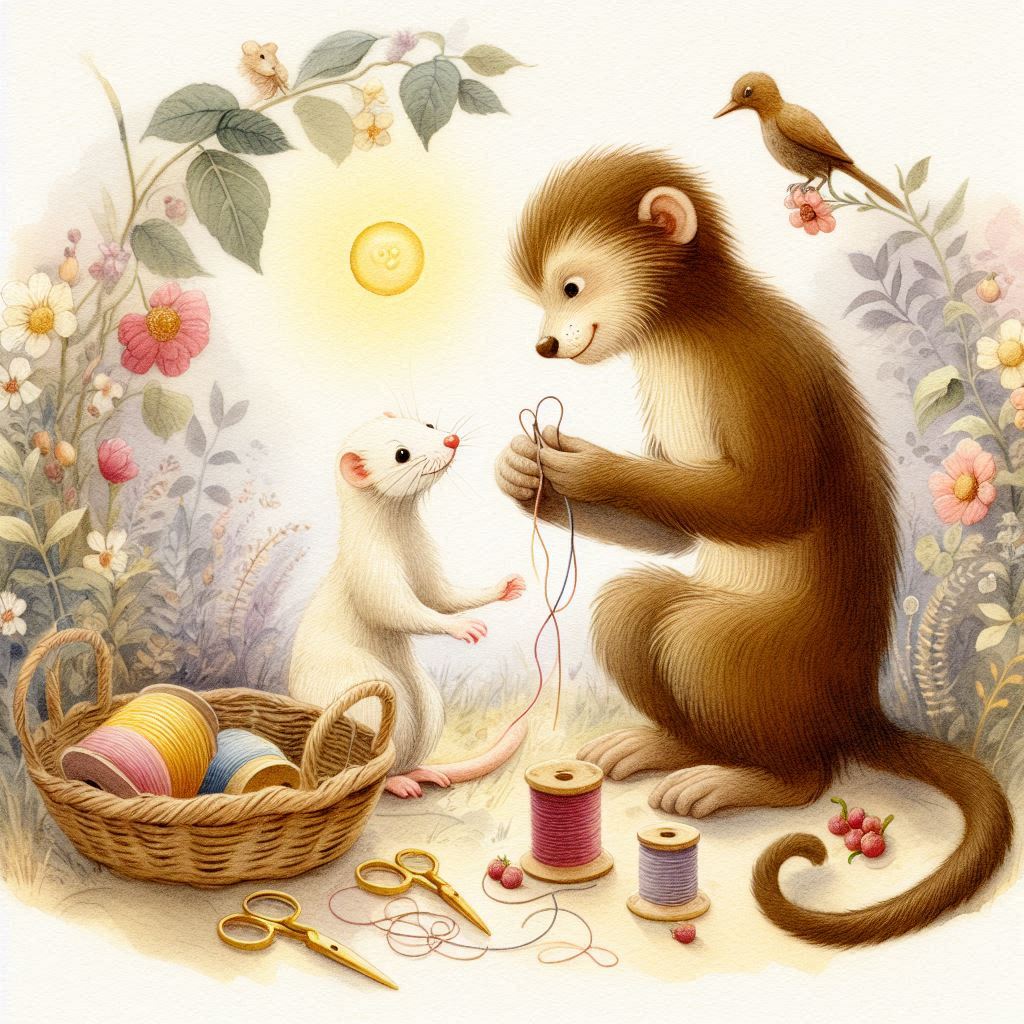All Around the Mulberry Bush 🐒 (American Version)
This American adaptation of the closely related to the very similar English rhyme, combining the “mulberry bush” motif with the refrain from “Pop Goes the Weasel“. The chant is often accompanied by a singing game where children walk or dance in a circle, mimicking the actions described in the lyrics. Its playful story and lively tune have made it a staple in American preschools and playgrounds. This article explores the meaning, origins, and cultural significance of this classic rhyme.
All around the mulberry bush,
The monkey chased the weasel.
The monkey thought it was all in fun,
Pop! goes the weasel.A penny for a spool of thread,
A penny for a needle,
That’s the way the money goes,
Pop! goes the weasel.
Print or Save This Rhyme
Download PDFRecitals
Listen as male American:
Listen as female American:
Listen as told in a story:
What is the Meaning of the ‘All Around the Mulberry Bush’ Nursery Rhyme?
The American version “All Around the Mulberry Bush” merging with “Pop Goes the Weasel” tells a playful story featuring a monkey and a weasel in a chase. Verses about money, sewing, and food (“A penny for a spool of thread…”; “Half a pound of rice…”) reflect domestic life, everyday spending, and child-friendly themes. The phrase “Pop! goes the weasel” is an onomatopoeic refrain whose exact origin remains debated, but is used mainly for rhythmic effect.
History and Origin of the Rhyme
The song originated in mid-19th century England as a dance tune with nonsense lyrics, later developing into a popular children’s game and rhyme. The melody crossed to America, where the opening verse changed from “cobbler’s bench” or “City Road” to “mulberry bush.” The American lyrics often simplify the storyline and incorporate familiar activities, contributing to the song’s popularity.
Time Period
Documented in the US since the 1850s. The American version became established by the mid-20th century and is one of the most well-known variations today.
Historical or Cultural Notes
The change from “cobbler’s bench” in British versions to “mulberry bush” in American ones likely reflects adaptation to American playground culture and storytelling. The rhyme has evolved as both a music hall song and a nursery classic, with “mulberry bush” sometimes overlapping with “Here We Go Round the Mulberry Bush.” The phrase “Pop Goes the Weasel” remains mysterious; it is sometimes traced to pawning one’s coat (“weasel” as cockney slang), but today is simply a beloved refrain.
Why It Became Popular
Its catchy melody and nonsense refrain make it ideal for group play, dancing, and early music learning. The monkey and weasel imagery appeals to children, and the repetitive, easy-to-remember lines help with linguistic development and fun.
Notable Variants
Countless local and historical variants exist, including jokes, ribald verses, and references to current events. British versions have multiple stanzas about spending money, tailoring, and City Road, while American versions focus on chase, shopping, and playful antics.
Structure, Style, and Themes
Structure and Style
- Meter: Musical, playful, often danced or acted out
- Rhyme Scheme: ABCA (main verse)
- Line Count: 4 lines per verse; American versions combine several verses
- Style Notes: Narrative, cyclic, chant-like
Themes
- Play, chase, and fun games
- Domestic life and spending
- Music, rhythm, and repetition
Language Notes
“Pop! goes the weasel” may refer to an action (pop, sudden jump or exit), a dance step, a cockney slang for pawning a coat, or simply as a nonsense line for musical effect. Usage of money references (“penny for a spool of thread”) reflects daily life and budgeting for necessities in an entertaining way.
Moral or Lesson
No overt lesson; the rhyme encourages play and sing-along engagement, with underlying echoes of economic reality for families.

